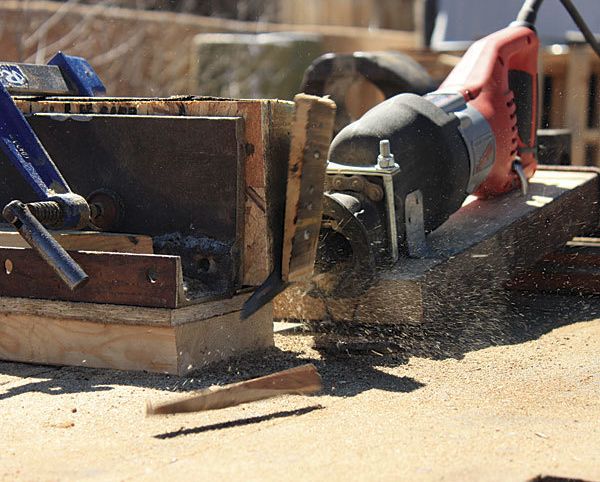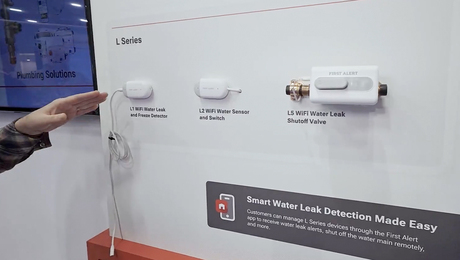Tool Test: Demolition Blades
The price you pay for these reciprocating-saw blades doesn’t necessarily correspond to the performance you get.

Synopsis: Manufacturers have designed unique reciprocating-saw blades for cutting through a variety of specific materials. For demolition and remodeling work, though, a single blade is expected to cut through them all. One minute you’re in clean wood, the next you’re in wood with nails, plastic, insulation, joist hangers, steel studs, or worst of all, asphalt roofing. This type of work requires a demolition blade, and author David Crosby put 15 of these blades through an ordeal that tested their durability and flexibility. Despite these blades’ similarities, the testing revealed some rather dramatic differences in performance that didn’t necessarily correspond with price. Crosby identifies the three most common sources of demolition blade destruction—heat, tooth damage, and bending—and describes how the best blades are designed to ward off destruction for as long as possible.
I’ll never forget the amazement I felt when I went to work for a building company that supplied reciprocating-saw blades to its carpenters. All I had to do was write down my name, how many blades I took, and what job the blades were for. I’m not sure the novelty ever wore off.
Now, being self-employed, I am buying my own blades. With a price range from about $2 to $10 per blade, I’m looking for that sweet spot somewhere between price and value.
Not convinced that such a small price tag makes a difference to the bottom line? Consider this: If I plan to use one blade for a job and end up destroying four or five, that’s pretty much my salary for the hour.
Choosing the best blade for the job makes sense, but a lot of the conflicting advertising claims don’t. They can’t all be the best, so is there a difference? With that question in mind, I tortured 15 top-brand blades so that you wouldn’t have to. And while I’ve got a good answer to the question “What is the best reciprocating-saw blade?” (more on that later), it’s also important to ask, “Best for what?”
One blade to rule them all?
In residential construction, reciprocating-saw blades are used for cutting wood, wood with nails, plastics (PVC or ABS), light-gauge metal (steel studs, framing connectors, or conduit), and occasionally, heavier steel, like bolts and rebar.
Tool manufacturers have developed specific blades for all of these applications, and if used for the task printed on the blade, they all work reasonably well. The industry standard for fast, controllable cuts with great durability in clean wood or plastic is the 6-tpi (teeth per inch) bimetal blade, typically about 0.035 in. thick.
For demolition and remodeling work, though, a single blade is expected to cut through all those materials. One minute you’re in clean wood, the next you’re in wood with nails, plastic, insulation, joist hangers, steel studs, or worst of all, asphalt roofing.
The 15 demolition blades tested here are heavier and thicker than the average reciprocating-saw blade, and they have a different profile and tooth configuration. Despite these blades’ similarities, the testing revealed some rather dramatic differences in performance.
Three ways to kill a demolition blade
Sometimes a blade will cut until it just wears out, in which case you’ve gotten your money’s worth. But for most demolition blades, life is nasty, brutish, and short. There are three things that will send a demolition blade to the Dumpster in a hurry.
Heat
As with most metal-cutting tools, a reciprocating-saw blade’s number-one enemy is heat. When the teeth on a blade overheat, the hardness and temper of the metal are compromised. In other words, the teeth lose the mechanical properties that make them tough or durable; they get softer. To defeat heat, a blade must be able to cut material efficiently while shedding sawdust and debris out of the kerf to keep things cool.
For more photos and details on reciprocating-saw blades, click the View PDF button below.
Fine Homebuilding Recommended Products
Fine Homebuilding receives a commission for items purchased through links on this site, including Amazon Associates and other affiliate advertising programs.

8067 All-Weather Flashing Tape

Reliable Crimp Connectors

Handy Heat Gun






















